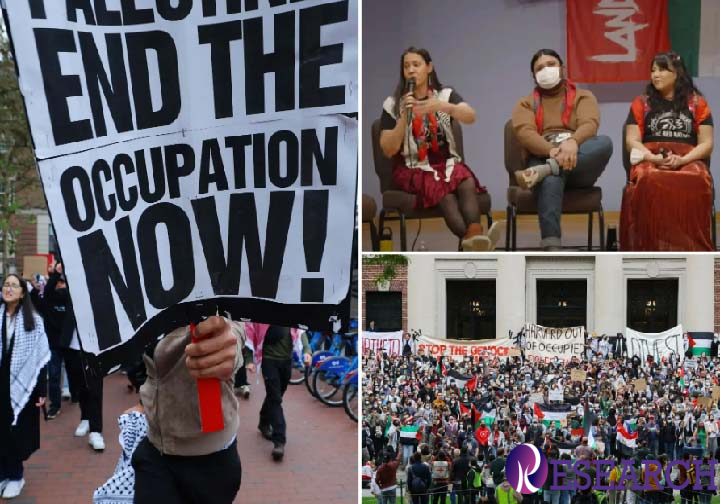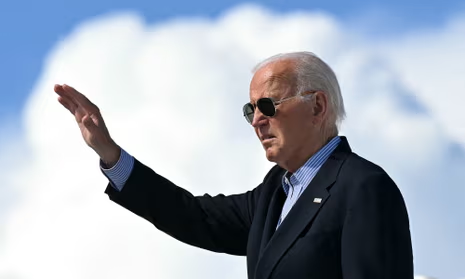Earlier this month, a University of Minnesota liberal arts professor made headlines after calling for the decolonize of America during a pro-Palestinian event. The event, which was part of an anti-capitalist Native American advocacy group known as the Red Nation’s “teach-in” on the ongoing Israel-Hamas conflict, sparked controversy due to the statements made by Professor Melanie Yazzie.
Who Is Melanie Yazzie?
Melanie Yazzie is a professor of liberal arts at the University of Minnesota, known for her outspoken views on indigenous rights, anti-colonialism, and social justice. Yazzie co-hosts a podcast called “Red Power Hour” as part of the Red Nation, a group advocating for Native American rights and a stronger stance against capitalism and settler colonialism.
What Was Said During the Event?
During the pro-Palestinian teach-in, Yazzie delivered a speech that drew attention for its strong rhetoric. She opened by framing her perspective on colonialism, stating, “We’re all indigenous people who come from nations under occupation by the United States government.” She likened the U.S. government’s actions in Palestine to its historical treatment of Native American tribes, drawing a connection between the occupation of Palestinian land and the colonization of North America.
Yazzie went further, describing the U.S. as “the greatest predator empire that has ever existed,” and emphasized the need to “decolonize this place” in order to bring global change. She tied the fate of both indigenous peoples and the future of life on Earth to the dismantling of what she referred to as the “settler project that is the United States.”
Key Points of Controversy
Yazzie’s remarks did not stop at critiques of U.S. foreign policy or its support of Israel. She also called for the removal of U.S. influence from all regions it occupies or influences, including Palestine and Turtle Island, a term used by some Native American communities to describe North America.
She argued that the current global situation has drastically changed since the Hamas-led attacks on Israel on October 7, 2023. According to Yazzie, “The entire world has changed,” and she urged listeners to “lean into scaring” colonizers, celebrating the fact that colonizers, in her words, are “scared.”
These strong sentiments were met with applause from the audience, but they also sparked debate outside the event. Critics have pointed out that her statements were inflammatory and could alienate broader audiences, while others have argued that Yazzie’s views resonate with those who feel marginalized or oppressed by systemic structures.
The Broader Context: Indigenous and Palestinian Struggles
The connection between Native American rights and Palestinian liberation is not new. Both movements share narratives of resistance against settler colonialism, displacement, and the fight for sovereignty. Advocates for indigenous peoples have long recognized the parallels between their own historical struggles and the ongoing conflict in the Middle East.
For Yazzie, Palestine represents a “righteous struggle” that serves as an alternative path for native nations. She emphasized that resistance, rather than liberalism, is the solution to the oppression faced by colonized peoples worldwide. Her statements are part of a broader discourse that questions not only U.S. foreign policy but the very foundation of the United States as a settler colonial nation.
Criticism of Liberalism
In addition to calling for decolonization, Yazzie delivered a sharp critique of liberalism, calling it “bulls—” and “trash” that masks imperialist and colonial violence under the guise of politeness, using terms like “Minnesota Nice” as an example. She rejected the idea that liberalism could lead to meaningful resistance, instead advocating for more radical approaches to dismantle colonial systems.
Yazzie argued that the only way to achieve true liberation is through resistance, drawing on the history of indigenous people who have resisted colonial violence for centuries. She framed this resistance as a necessary step for the survival of not just marginalized groups but the planet as a whole.
Calls for Decolonization and the Future
Minnesota professor Yazzie’s call for decolonize was far-reaching. She emphasized that decolonization is not just about addressing past injustices but also about reshaping the future. She concluded by stating that decolonization is “the only thing that’s going to save us as a species” and that it is essential for the survival of humanity and the planet.
Reactions and Impact
Yazzie’s remarks have drawn mixed reactions. Some supporters view her words as a powerful call to action for those who feel oppressed by colonial systems and support global liberation struggles. Others see her statements as divisive and problematic, particularly in a polarized political climate where discussions about colonialism, race, and global conflicts are already fraught with tension.
The University of Minnesota has not yet commented on the remarks, but the event has reignited debates about academic freedom, the role of professors in political activism, and the intersection of indigenous rights with international conflicts like that of Israel and Palestine.
Conclusion
As the debate surrounding Professor Melanie Yazzie’s remarks continues to unfold, it highlights the deep divisions in how people view issues of colonialism, occupation, and resistance. For some, Minnesota professor Yazzie’s speech at the Red Nation event represents a bold vision for a decolonize future, while for others, it raises concerns about the tone and implications of such radical calls to action.
Regardless of where one stands on the issue, the event has brought these critical conversations to the forefront, forcing a reckoning with the United States’ history of colonization and its ongoing influence in global conflicts like the Israel-Palestine struggle.


